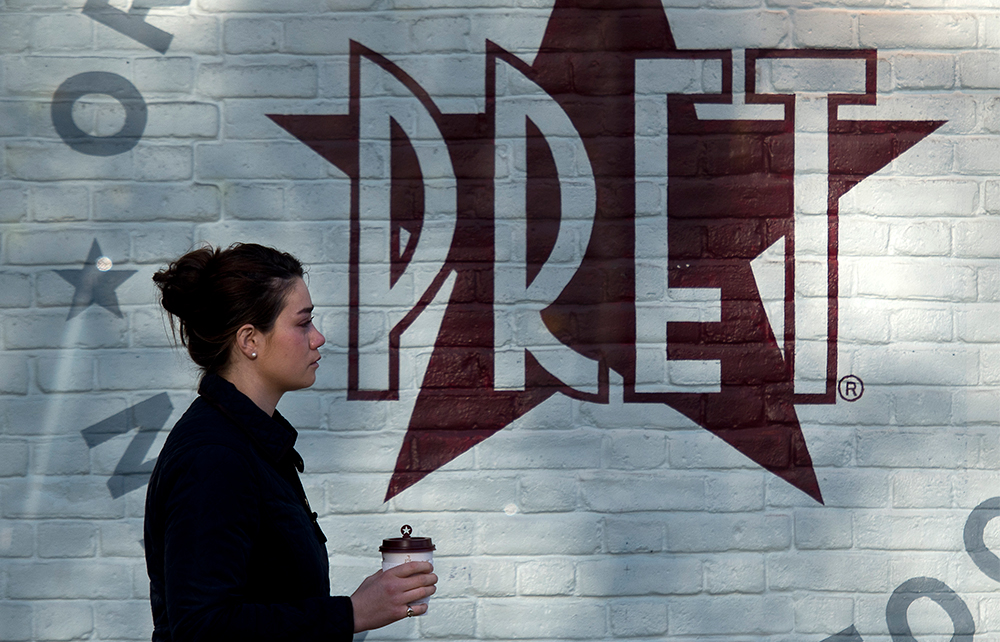How bad would it be if Royal Mail’s parent company, International Distributions Services (IDS), were to be taken over by the Czech billionaire Daniel Kretinsky? Our historic postal service is heavily lossmaking, struggling to maintain its universal delivery obligation and at war with its unions: a foreign owner would surely take an axe to it.
Kretinsky, who owns almost 28 per cent of stockmarket-listed IDS, has gone back on an assurance that he would not try to take the company private and has tabled a £3.1 billion offer – above the group’s current market value but well below what other shareholders think it is worth. He won’t win with this first gambit but he’s likely to be back with a higher one.
Ministers could use national security powers to stop Kretinsky if they deem him unsuitable to own vital infrastructure. Nicknamed the ‘Czech sphinx’ for his reluctance to talk to the media, he built a fortune in fossil fuels but also owns stakes in Sainsbury’s and West Ham United and controls Casino, the French supermarket chain. What he apparently hankers after in IDS is its profitable Netherlands-based parcels division, GLS; analysts see scope for a joint venture or merger with PostNL, which delivers across Benelux and of which Kretinsky also owns 30 per cent.
But what would he do to poor old Royal Mail? If he can’t reform it he’ll surely want to dump it – and few would want to take on its crippling obligations and militant workforce. Is there a scenario in which a Labour government might relieve Kretinsky of Royal Mail at a knock-down price, re-merge it with the Post Office and give us back a decent postal service? If Kretinsky could be the catalyst for that, let’s hear his best offer.
Peak Pret
I’ve always thought the tastiest item in Pret A Manger is the soup and the most interesting fact about the chain is that its co-founder Julian Metcalfe is a grandson of Major ‘Fruity’ Metcalfe, Edward VIII’s mistreated sidekick. I always thought too that in its early years, Pret was the best new brand on the high street: Metcalfe and his business partner Sinclair Beecham genuinely cared about the quality of their food and service – and gave what was unsold to the homeless.
Their sale in 2001 of a one-third stake to McDonald’s did no apparent harm. Then in 2008 McDonald’s sold to the private equity giant Bridgepoint, which took majority ownership for £364 million. Ten years later Bridgepoint sold for £1.5 billion to JAB, a brand conglomerate controlled by German billionaires. Meanwhile, Pret outlets, more than 500 of them, sprang up everywhere.
But the success story has gradually soured, one bad piece of PR following another. The Club Pret £30-per-month discount scheme introduced during Covid seems to have descended into chaos. When inflation hit, there were allegations of profiteering (‘the £7.15 cheese baguette’). In the tight post-pandemic labour market, counter service suffered. A Veggie Pret sister chain failed. And last year the firm was fined £800,000 after a worker was stuck in a walk-in freezer for two-and-a-half hours.
So the smart talk is of ‘peak Pret’ – and certainly there’s a natural arc of rise and decline for any ground-breaking business in a competitive marketplace. There’s also the curse of private equity, which prioritises profit extraction ahead of the founder-entrepreneurs’ urge for perfection. But at least there’s still spicy lemongrass chicken broth for my lunch at the desk.
Postcard from Houston
In San Francisco the trial of Mike Lynch – the extradited British software entrepreneur charged with multibillion dollar fraud in the sale of his UK business, Autonomy, to Hewlett Packard of the US – grinds on. Or so I assume, its proceedings having been unreported for a month because, I suspect, the evidence is impenetrable and most of the media are convinced a guilty verdict is inevitable under the steamroller of US justice. But I have news from an earlier target of the notoriously lopsided 2003 US-UK extradition treaty that might make Lynch feel a little better about his future on the far side of whatever the jury decides.
David Bermingham was one of the ‘NatWest Three’ extradited in 2006 to be tried for ‘wire fraud’ in dealings with the collapsed energy giant Enron – dealings in which UK regulators had found nothing to pursue. The trio were convicted and sentenced in Houston, on a plea bargain, to 37 months’ imprisonment of which they served 30, latterly in UK open prisons.
Toughened by private school and the army, Bermingham survived unscathed and wrote a good book – A Price to Pay (2012) – about his trial experience. He tells me he has at last been allowed back to Houston for the first time since his release, to visit friends and supporters: ‘Despite an interview without coffee on arrival [at the airport], as a process of catharsis the trip worked well.’
Standard bearer
To Wooler in Northumberland for lunch with (Lord) Nigel Vinson, now 93 and still one of Britain’s doughtiest champions of ‘the creation of wealth through worthwhile activities in a free society’. More than 50 years ago he sold his industrial plastics business to become a farmer in this wild northern landscape and a Thatcherite thinktank founder in London. He’s keen to show me Ad Gefrin, a whisky distillery and Anglo-Saxon museum created by the Ferguson family on the site of their former haulage depot. In its bold contemporary building there’s also a busy bistro with a French chef, Olivier Borja, whose rich lamb stew I recommend with Cheviot ETale dark bitter and a tot of the distillery’s first product, Tácnbora. That name is Old English for ‘standard bearer’ – and that’s exactly what this project is for transformational enterprise in an area whose traditional rural economy is struggling and fading. Every small town should have one.








Comments